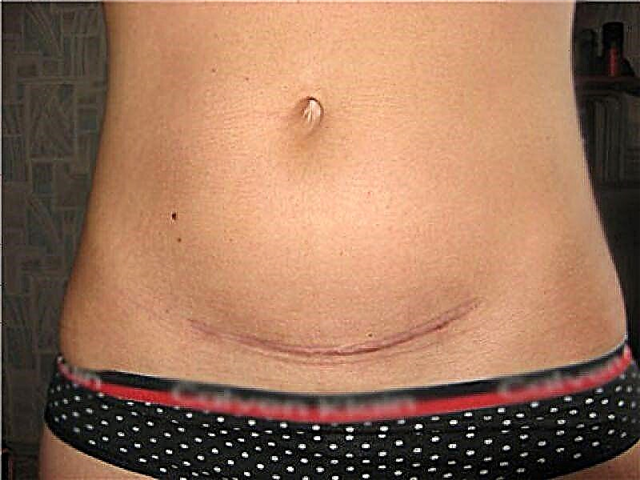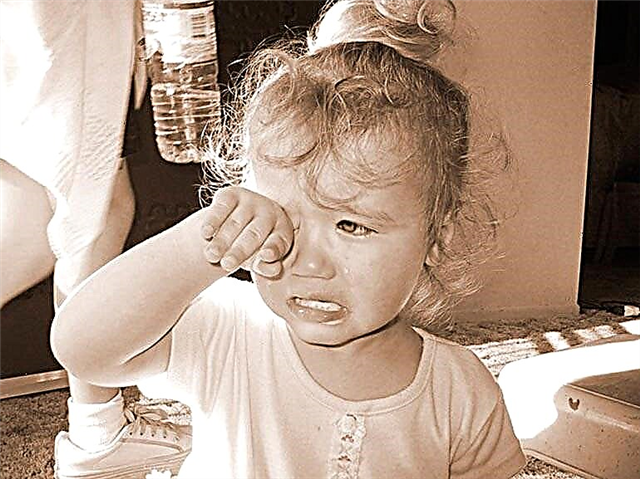
Abdominal pain after a cesarean section can have a variety of causes, so it is rather difficult to unequivocally answer the question of how long the stomach will hurt. The main causes of pain and the approximate time frame for its elimination are in our article.
Where does the pain come from?
The main reason the stomach hurts after surgery is contraction of the uterus. During pregnancy, she has grown 500 times and even a little more, and therefore her tissues have undergone significant changes. During the operation, the doctor extracts the baby and the placenta from the genital organ, which has already managed to grow tightly with a network of blood vessels to the uterine tissue.
In the process, the vessels are disturbed. This is due to the bleeding after surgical delivery. The size of the uterus at the end of the operation does not differ so much from those that were in the last weeks of pregnancy. It is stretched out, but now there is no fruit in it. The uterus is to be involved to its previous size. This process takes place constantly and continuously, especially intensively - in the first 3-4 days after the operation.

Stretched muscle fibers contract in a cramping manner, this causes pain that is very similar to the pain of menstruation. Pains and discharge from the genitals intensify after injections of reducing drugs (a woman is injected with oxytocin after surgery in the maternity hospital). The uterus can contract up to 6-8 weeks, every day the pain will be less and less frequent.
Breastfeeding women note that sometimes discomfort in the very lower abdomen and lower back, together with increased postpartum discharge, are also observed at the time of feeding the baby's breast. This is how the natural natural oxytocin, which is produced in the body of a nursing mother when the nipple is stimulated, acts on the smooth muscles of the uterus.
The second cause of pain is discomfort in the area of the external scar. When the anterior abdominal wall was dissected, not only the skin and muscles were damaged, but also the blood vessels and nerve endings. The pains are moderate pulling or tingling in nature, during movement they intensify. As a strong scar forms, the pain will decrease. The external seam usually hurts for 20-30 days. After a month, if there are no complications, the scar becomes less dense, less painful, begins to brighten. Above the seam, pain may be present for a little more than a month: a completely natural skin roll forms there. As muscle tone is restored, it can be removed.


Pathological situations
In practice, not all natural postoperative processes proceed without complications. Surgical intervention itself creates serious prerequisites for the development of certain complications, and therefore there are situations in which abdominal pain will be a signal of danger.
Since only severe pain in the early postoperative period and moderate irregular pain during the rehabilitation period up to 6-8 weeks from the date of birth of the baby are considered normal, then all pains that continue after this period should be a reason for immediate medical attention.
The reasons that cause painful sensations can be very different. Acute pain in the lower abdomen against the background of an increase in temperature, the appearance of abnormal discharge from the genitals, discharge from the scar on the abdomen may indicate an infectious process. Most often, such a complication occurs in the first days after surgery or within 1-2 weeks.

Pain in the scar even after removal of the suture material may indicate possible infection, adhesions, hernia formation, and seam divergence.
If the left side or right side hurts, problems with the kidneys and urinary system are not excluded. The fact is that surgical intervention is a tangible blow to the state of the immune defense. The emergence of an acute or exacerbation of a chronic disease is not excluded. Quite often, the temperature also rises, the amount and consistency, color and smell of urine change, pain appears when urinating.
Acute abdominal pain at any time after surgical delivery is a reason for urgent medical attention... Dull, aching, prolonged and generally bearable pains can be both the norm until a certain period of time, and pathologies.

How to promote recovery?
A woman cannot influence either the contractions of the uterus or the pain in the suture area. But she can behave correctly in order to prevent complications at any of the stages of the recovery period. Then the abdominal pain will be short-lived.
- The sooner a woman gets to her feet after surgery, the better. It is optimal to start walking within 10 hours after the operation, and to sit after 8 hours.
- It is useful to wear a postpartum bandage and sleep on your stomach, and from the very first days after surgery. So the uterus will contract faster, which will lead to an earlier disappearance of the pain syndrome.
- Excessive physical activity is contraindicated, but constant lying in the supine position does not contribute to the restoration of the uterus and abdominal muscles.
- After the operation, it is categorically contraindicated to endure the urge to urinate and defecate, the bladder and intestines should not be filled, and all foods that cause increased gas production and subsequent bloating should be excluded from the diet.
- Intimate relationships are contraindicated within 2 months after a cesarean section. It is also not recommended for a woman to engage in self-gratification. A rush of blood to the uterus can provoke bleeding, sexual arousal and the associated tension of the muscles of the uterus will be a negative factor for the formation of a full-fledged scar on the uterus.
- A woman should not lift weights. The optimal maximum weight is no more than 4 kilograms. Wearing heavier objects can cause abdominal pain.
- To make the uterus contract faster, you need to put the baby to the breast more often.


Anesthesia drugs
Different women experience pain in different ways: some are persistent and patient, while others will be easily pissed off by even quite tolerable pain. If pain after surgery is difficult to endure, and the doctor does not see any pathological reasons for that, you should not hesitate to ask the doctor to prescribe an anesthetic.
Most women, even during breastfeeding, are allowed to take the No-shpy pill.if the stomach aches significantly. The drug will not harm the baby, but at the same time, it will quickly relieve spasms and eliminate discomfort.
The rest of the pain relievers must be agreed with the gynecologist and pediatrician so that the baby who feeds on breast milk does not suffer.


For information on how recovery is going after surgery, see the next video.



